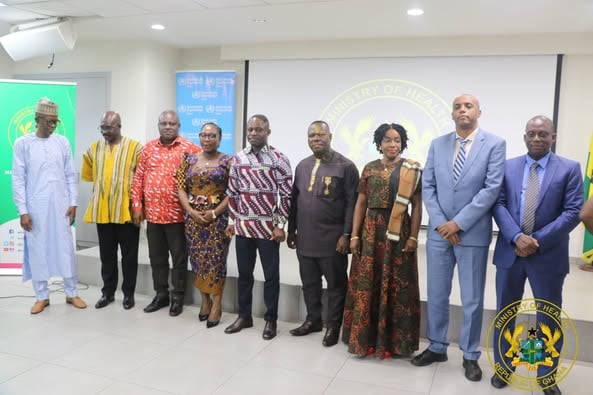The Ministry of Health in Ghana has taken a significant step towards bolstering the nation’s capacity to address public health emergencies by inaugurating the Pandemic Fund National Steering Committee. This 13-member committee, composed of representatives from diverse sectors including health, agriculture, finance, gender, environment, civil society, and international development partners, has been entrusted with the crucial mandate of enhancing Ghana’s preparedness and response mechanisms. The committee’s operations are expected to be guided by the principles of urgency, transparency, and accountability, ensuring a swift and effective response to any emerging health threats. The establishment of this committee underscores the Ghanaian government’s recognition of the increasing importance of proactive measures in safeguarding public health.
The urgency of this initiative is further emphasized by recent health challenges faced by the country. Upon assuming office, the Health Minister, Mr. Kwabena Mintah Akandoh, was immediately confronted with a meningitis outbreak in the Upper West Region, a resurgence of cholera in parts of Greater Accra and the Central Region, and an ongoing Mpox outbreak with over 79 confirmed cases. These concurrent health crises highlight the vulnerability of the nation to emerging infectious diseases and underscore the need for a robust and well-coordinated response system. The Pandemic Fund National Steering Committee is expected to play a pivotal role in strengthening these systems and ensuring that Ghana is better equipped to handle future health emergencies.
The Pandemic Fund, a global initiative coordinated by the World Bank and supported by the World Health Organization (WHO), aims to provide financial and technical assistance to countries in strengthening their national health systems. Specifically, the fund will support improvements in three key areas: health workforce readiness, ensuring that healthcare professionals are adequately trained and equipped to handle outbreaks; laboratory infrastructure, enhancing the capacity for accurate and timely diagnosis; and early warning surveillance systems, enabling rapid detection and response to emerging threats. These investments are crucial for building a resilient health system capable of effectively containing and managing future health crises.
The Minister of Health has charged the newly formed committee with the responsibility of translating policy into tangible action. He emphasized the importance of transparency and accountability in all committee proceedings, ensuring that resources are utilized effectively and that the public is kept informed of progress. This emphasis on good governance is critical for building public trust and ensuring the long-term sustainability of the initiative. The committee’s role transcends mere policy formulation; it is tasked with driving practical improvements in Ghana’s pandemic preparedness and response capabilities.
Dr. Sofonias Asrat, the Cluster Lead for Universal Health Coverage (UHC), expressed strong support for Ghana’s efforts in strengthening its health security. He acknowledged the urgent need for pandemic preparedness and commended Ghana’s recent Joint External Evaluation (JEE), a voluntary peer-review process that assesses a country’s capacity to prevent, detect, and respond to public health emergencies. Dr. Asrat expressed optimism that the Pandemic Fund project would further enhance Ghana’s performance in future evaluations. He encouraged the committee members to prioritize transparency and inclusivity in their oversight role, emphasizing their crucial leadership in enabling Ghana to respond effectively to future public health threats.
The inauguration ceremony, attended by senior officials from various organizations including the Ministry of Health, Ghana Health Service, WHO, FAO, UNICEF, World Bank, civil society, and academia, demonstrated the broad-based support for this initiative. This collaborative approach, involving both national and international stakeholders, is essential for effectively addressing complex health challenges. The diverse expertise represented at the inauguration highlights the comprehensive nature of the project, encompassing not only health-related aspects but also other critical sectors such as agriculture, finance, and the environment. The commitment of these stakeholders bodes well for the success of the Pandemic Fund National Steering Committee in achieving its ambitious goals.














